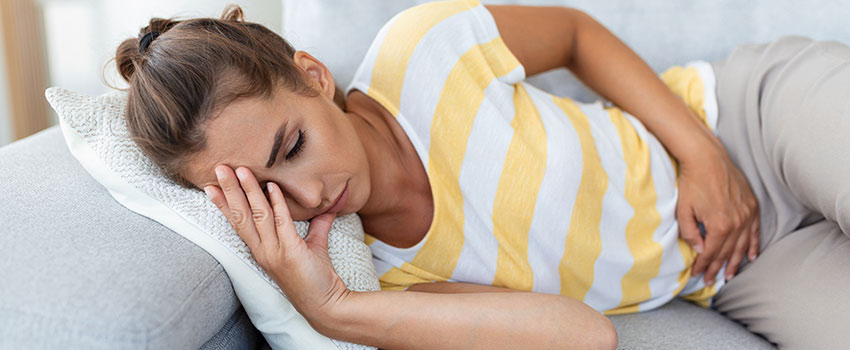
What Happens if I Get Salmonella While Pregnant?
When you’re pregnant, watching what you eat is crucial for your baby’s health. So, if you start feeling sick after eating, it’s normal to be concerned. With recent salmonella outbreaks from cantaloupe and charcuterie meats in the U.S., everyone is a little more vigilant about what they’re eating – especially expectant mothers!
Is Salmonella Dangerous for Pregnant Women?
No one likes to get food poisoning, but it’s extra tricky when you’re pregnant. You’re already more tired than usual and experiencing morning sickness that often resembles food poisoning symptoms. If you’re pregnant, exercise caution regarding food poisoning due to its potential threat to the health of your unborn child. Although rare, if the infection is transmitted from mother to child, there is a slight risk for the child to develop severe conditions such as blood infection (sepsis) or meningitis.
Our team at AFC Urgent Care Chattanooga wants to share some tips on what to do if you think you’ve got salmonella.
How Do You Get Salmonella During Pregnancy?
Pregnancy comes with a lot of food do’s and don’ts, mainly to cut down your chances of getting foodborne illnesses like salmonella. This bacterium is found in raw or not fully cooked meats and eggs, and on fruits and veggies that haven’t been washed properly.
If you eat food with salmonella, you’ll probably start to feel symptoms within a few hours or days. You’ll mostly go through the same things as anyone else, but there’s a small chance it could affect your baby. It’s a good idea to touch base with your OB/GYN just to be sure your baby is doing fine.
Common Salmonella Symptoms
- Diarrhea
- Stomach cramps
- Fever
- Feeling queasy or throwing up
- Headaches
Symptoms can appear between 6 hours and 6 days after infection. Most people will experience symptoms between four to seven days.
How to Prevent Salmonella During Pregnancy
Safe Food Handling
A lot of salmonella cases come from foods that aren’t cooked well, so make sure you get your meat and veggies from places that are known for quality and cook them thoroughly. Also, wash all your produce to wash away any bacteria.
Be Cautious with Animals
Animals can give you salmonella, too. After petting your furry friends, remember to wash your hands. For now, skip the doggy kisses. And if you’re visiting places with animals, like petting zoos, make sure everyone cleans their hands afterward.
Wash Your Rags & Sponges
Maintaining a clean home is essential for your health and well-being, but did you know that even our cleaning tools can harbor harmful bacteria like salmonella? This common pathogen can survive on damp surfaces like rags and sponges, potentially spreading to food or through contact with hands.
Avoid Unpasteurized Foods
Avoid consuming cheeses, milk, or juices that haven’t undergone the pasteurization process. Cheeses such as imported brie, blue, and queso frequently fall into the unpasteurized category, so always verify the packaging to be certain. Soft cheeses that are clearly labeled as pasteurized are safe to eat.
Skip Foods with Raw Egg
To minimize this risk, it’s crucial to avoid foods containing raw or undercooked eggs. This includes beloved treats like homemade mayonnaise, Caesar salad dressing, and raw cookie dough. Additionally, be cautious of partially cooked dishes like sunny side up eggs or undercooked quiches.
When Does Salmonella Get Serious?
If you get infected, please monitor your symptoms to detect any signs of a severe case of salmonella. If you experience any of the following, get medical attention immediately:
- Symptoms hang around for more than six days
- Your stool is bloody
- You’re stuck with a high fever of 102 degrees or more
- You can’t seem to quench your thirst (a sign of dehydration)
If you have questions or concerns, visit AFC Urgent Care Chattanooga today.